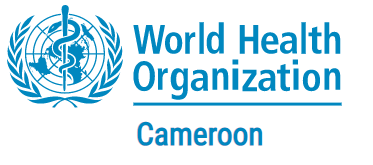Cameroon today launched the RTS,S malaria vaccine into its routine national immunization services, becoming the first country to do so outside the malaria vaccine pilot programme that was carried out in Ghana, Kenya and Malawi. The introduction comes as efforts gather pace to scale up vaccination against the disease in high risk areas in Africa.
The vaccine is being rolled out across 42 health districts in the country’s 10 regions in public and private health facilities. The launch comes after Cameroon received 331 200 doses of the vaccine in November 2023. More doses are expected in coming weeks.
“The vaccine is an additional tool for malaria control. It has been chosen by the country based on its pre-qualification, ensuring guaranteed quality, efficacy and safety for inclusion in the vaccination programme,” said Dr Shalom Ndoula, Permanent Secretary of the Expanded Programme on Immunization in Cameroon. “It will specifically target all children aged six months as of 31 December 2023.”
In preparation for the launch, World Health Organization (WHO) and other partners including GAVI, the Vaccine Alliance, UNICEF, Africa Centre for Disease Control and Prevention, and the Clinton Health Access Initiative supported the national health authorities to strengthen key vaccine introduction measures. For an effective vaccine introduction, it is essential that countries put in place comprehensive preparations that include adopting the national vaccination policy and guidelines, integrating the new vaccine into the delivery schedule of other vaccines and health interventions, developing an operational roll out plan, training of healthcare workers, investing in infrastructure, technical capacity, vaccine storage, community engagement and demand generation, and ensuring formative supervision, monitoring and evaluation of the process to ensure quality vaccine delivery.
“The launch of the malaria vaccine marks a significant step in the prevention and control of the disease, especially in protecting children against severe disease and death,” said Dr Phanuel Habimana, WHO Representative in Cameroon. “We’re committed to supporting the national health authorities to ensure an effective rollout of the malaria vaccine together with scale up of other malaria control measures.”
Cameroon is among the 11 countries most affected by the disease globally. The country recorded more than 3 million cases and over 3800 deaths in 2021. Cameroon has made the fight against malaria one of the priorities of its National Health Development Plan. With the support of partners, malaria control and prevention efforts over the years have helped to progressively lower the burden of the disease in the country.
“I chose to vaccinate my twins because I’ve seen how harmful malaria can be,” said Helene, whose twin children were the first to receive the malaria vaccine. “I’m committed to ensuring that my children get all the four doses of the vaccine and I’ll take other steps like making sure they sleep under mosquito nets.”
Since 2019, Ghana, Kenya and Malawi have been administering the RTS,S vaccine in a four-dose schedule to children from around 5 months of age in selected districts as part of the pilot programme, known as the Malaria Vaccine Implementation Programme (MVIP). More than 2 million children have been reached with the malaria vaccine in the three African countries through MVIP with over 8 million doses administered – resulting in a remarkable 13% drop in all-cause mortality in children age-eligible to receive the vaccine, and substantial reductions in severe malaria illness and hospitalizations.
Nine African countries are poised to launch the malaria vaccine this year. In addition to Cameroon, Benin, Burkina Faso and Liberia have received the vaccine and are finalizing vaccine rollout plans.
WHO, Gavi, the Vaccine Alliance, UNICEF and other partners are working closely with the African countries that are introducing the malaria vaccine to ensure delivery and successful rollout of the malaria vaccine.
Malaria burden is the highest on the African continent, which accounted for approximately 94% of global malaria cases and 95% of related deaths in 2022. There were 249 million malaria cases globally in 2022, leading to 608 000 deaths. Of these deaths, 77% were children under 5 years of age, mostly in Africa.
Distributed by APO Group on behalf of World Health Organization (WHO) – Cameroon.
